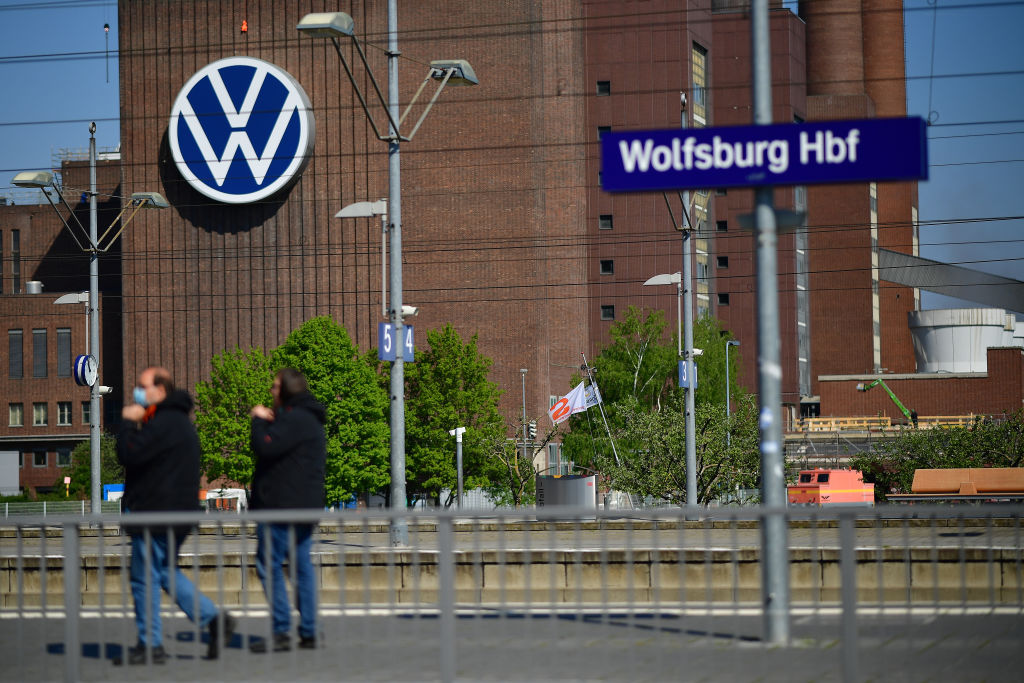One of the fundamental obligations of public service in a liberal democracy is the requirement to set aside one’s personal opinions and fulfil the programmes of elected executives. Elections determine policies and civil servants implement them. No democracy will long survive if its officials are free to substitute their personal preferences for the democratic mandate exercised by their leaders. Over a century ago, Prussian sociologist Max Weber identified this need for a dispassionate civil service if a legal, rational state were to thrive.
You may think that German governmental officials would be particularly attuned to this obligation, but unfortunately, not in the case of German Foreign Minister Johann Wadephul. He was recently in Syria on a visit intended to clear the way for the return of Syrian refugees to their homeland. Instead, Wadephul was overcome by emotion by the ruins in Damascus, compared it to 1945 Germany, and pronounced through tears that it would be “barely possible for anyone to live here in dignity”. Up in smoke went Chancellor Merz’s commitment to return as many Syrians as possible, as well as any pretence of foreign policy competence in Berlin. Max Weber’s prescriptions proved no impediment to Wadephul, who chose to ignore his professional duty in favour of a bout of performative Mitgefühl – that is, compassion.
Wadephul not only broke with his Chancellor, he strengthened the hand of the AfD, which gained further evidence that the centrist parties are simply incapable of dealing with the tough issues facing the country. His emotional breakdown was not just a professional faux pas, it was a violation of his mandate to execute faithfully the policies of his own Chancellor who seeks the expeditious return of Syrians. The Foreign Minister doesn’t have the luxury of coalition politics to blame for his freelancing: Unlike most German coalitions that grant the foreign ministry to the junior party, Wadephul is a Christian Democrat like Chancellor Merz. Activist judges will no doubt seize on his comments to block forcible returns, leaving the Merz government rudderless on the key issue fuelling populism in the country.
Wadephul’s comparison of Damascus with 1945 Germany is telling. While he clearly intended to invoke the grave moral responsibilities incumbent on German leaders since that war, he instead prompted different conclusions. Post-war Germany was rebuilt brick by brick by Germans, often women. The Trümmerfrauen were employed by occupying armies to clear the rubble and make the cities destroyed by allied bombing habitable again. The one million Syrians residing in Germany represent human capital desperately needed by post-war Syria if it is to revive its urban economies. Employing them as construction workers and janitors in Germany may help solve the country’s labour problems, but it won’t help Syria. Many of those who fled during Assad’s brutal war are the exact people Syria needs if it is to regain its status as a reasonably prosperous Arab state.
Syrians were waved into the country by Angela Merkel, who assured her people that wir schaffen das — we can do this — and that these temporary visitors would return home once hostilities ended. Yet now many of these migrants are happy to remain in Germany as beneficiaries of the country’s luscious social welfare programmes, despite acquiring little affinity for their host country. They won’t leave to aid in the reconstruction of their country without a firm prod from their hosts, an action likely pre-empted by Wadephul’s outburst. The continued presence of unassimilated migrants living on the public dole fuels the multi-cultural trainwreck afflicting Germany. In many cities, an array of ethnic clans threatens to displace German culture, the open defence of which is viewed as fascist-adjacent by German elites. Better to cancel Christmas markets than protect them from recent arrivals.
The flood of migrants a decade ago overwhelmed the limited capacity of the country to transform them into sturdy tax-paying burghers. Germany wasn’t built for immigration. After the war, it was ethnically and linguistically homogenous, and developed none of the administrative tools needed to assimilate newcomers. The United States welcomed a wave of immigrants during the nineteenth century to meet an inexhaustible demand for industrial labour and populate a boundless supply of cheap land. Becoming an American didn’t require much beyond an oath to the Constitution and respect for American laws. The lack of an American social welfare state imposed hardships remedied only by hard work and productive enterprise. German and Italian immigrants became fully American, and fought bravely in wars against their ancestral homelands. By contrast, the descendants of Turkish Gastarbeiter still vote in Turkish elections.
Assimilation in Germany requires a mastery of complex bureaucratic processes, few of which can be navigated without a good working knowledge of the German language and the country’s arcane administrative culture. Those who fail subsist on public benefits, and often take revenge for their social exclusion through petty crime, sexual assault and a passion for Islamist militancy. Failed assimilation without recourse to deportation imposes financial burdens Germany can no longer afford, and risks the creation of a permanent, hostile underclass. Europe cannot become the social welfare provider for Arab and African states, nor can it address the “root causes” of migration by skimming off the most capable citizens in these countries. Greens and Social Democrats must confront the fact that turning potential African leaders into German nursing home attendants is the modern day equivalent of ransacking the continent for its gold and ivory.
Germany has been evicted from its thirty-year sojourn from history and must now relearn the hard habits needed to protect the country not just from Russian aggression but from migrants whose reluctance to return home fuels the populist tide and drains the public purse. The country was never engineered for mass immigration, and must reduce the indigestible numbers of migrants, starting with the indolent and the criminal. The Trump administration shows how tough policies can induce massive self-deportation. Whether Merz can overcome his feckless foreign minister and impose similar policies will determine whether the centre of German politics will hold, or be displaced by the rough beasts of the AfD.





Outdated software running Germany Inc goes for easy protection not innovation